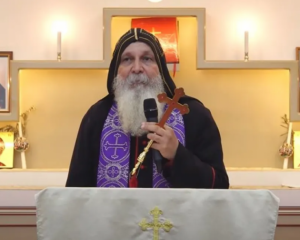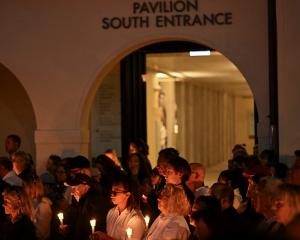An industrial dispute between Fairfax Media and its journalists escalated today, with reporters picketing and a high-profile columnist sacked.
Staff in Melbourne and NSW walked off the job yesterday over job cuts and pay negotiations.
The action follows the announcement earlier this week that Fairfax would slash 550 jobs, saving the company $50 million.
Staff at The Sydney Morning Herald, the Illawarra Mercury and the Newcastle Herald picketed outside their offices, while journalists in Melbourne held a public rally at the offices of The Age.
Additional security surrounded Fairfax's offices at Pyrmont in Sydney and at The Age building in Melbourne.
The workers, including from Fairfax's Sunday publications, the Sun-Herald and Sunday Age, are all on strike until Monday after voting to take the industrial action at stop-work meetings yesterday.
The Media Entertainment and Arts Alliance (MEAA) said editors from Rural Press titles across NSW had been "bussed in" to Sydney to produce the paper over the weekend.
But Fairfax Media boss David Kirk said senior staff and employees contractually exempt from industrial action were compiling the newspapers.
Mr Kirk said the strike action was unprotected and illegal and the company reserved its right to take action.
"We'll reserve our rights on all of that, and we'll make decisions as things evolve," he said.
A spokesman for Fairfax said the company was not planning to go to the Australian Industrial Relations Commission (AIRC), but the situation could change.
But the MEAA was taking Fairfax to the AIRC, after a member who works in The Sydney Morning Herald imaging department was refused entry to the building today.
And the Workplace Ombudsman was investigating potential unlawful actions from Fairfax over its decision to sack prominent SMH columnist Mike Carlton, for refusing to write his weekly column.
The strike action has so far not spread to the company's printing facilities.
Sandra Harrison, a pictorial and visual editor picketing outside the SMH offices, said she was upset there was no consultation with staff before the job cut decision, except for an email.
"That creates fear, that creates frustration, that creates anger."
MEAA spokesman Mike Dobbie said the Melbourne rally was in protest against the "low-cost, low-quality journalism that Fairfax management wishes to impose".
But Mr Kirk denied the job cuts would affect the quality of the group's reporting.
Just over 100 jobs would go across Sydney and Melbourne editorial departments, but would largely affect sub-editing positions on advertising and lifestyle supplements, he said.
"Not the ... hard news, not the international news, not the business, sport, local news, that is not the part of the business that is being affected at all," Mr Kirk told AAP.
"It's really quite mischievous of people to say that there's going to be a decline in the quality."
He said some reporters' jobs might go, but he would call for volunteers before reserving the right to move to compulsory redundancies.
Mr Kirk said the strike action resulted from yesterday's stop-work meeting to discuss the company's proposed new enterprise bargaining agreement.
He said Fairfax's offer to employees of salary increases of between 11 percent and 12.25 percent over three years, was at the upper end of salaries paid by Australian and international media companies.
Herald and Weekly Times union members sent a message of support to their Fairfax rivals today, saying professional journalism and healthy competition were essential to the interests of democracy.
The MEAA issued a letter encouraging all its members to join the striking staff in their protests.












